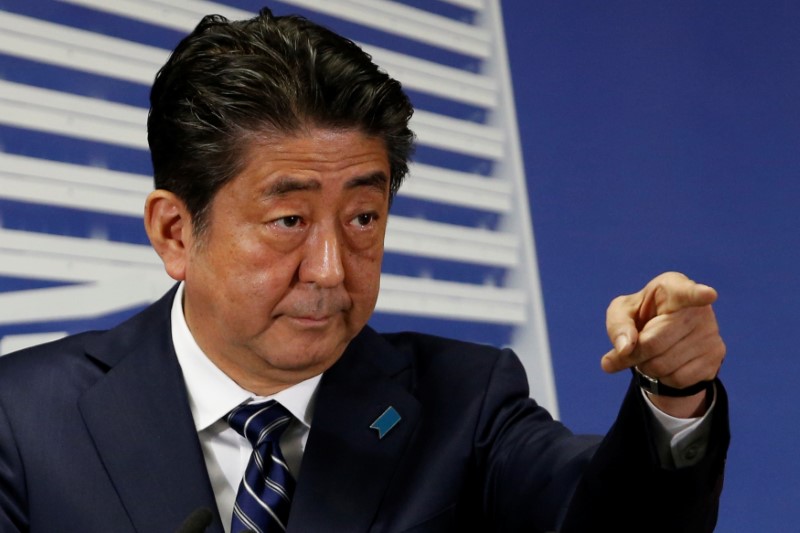 © Reuters. Japan’s Prime Minister Shinzo Abe, who is also leader of the Liberal Democratic Party, attends a news conference in Tokyo
© Reuters. Japan’s Prime Minister Shinzo Abe, who is also leader of the Liberal Democratic Party, attends a news conference in TokyoTOKYO (Reuters) – The victory of premier Shinzo Abe’s ruling bloc in a weekend election should strengthen his hand in adopting pro-growth economic policies and his pledge to proceed with a scheduled sales tax will help reduce debt, Fitch Ratings said on Tuesday.
But prospects for structural reform remain limited, as there is still “little sign” Abe is making a breakthrough necessary to boost Japan’s long-term growth, the rating agency said.
Abe’s ruling coalition scored a landslide victory at a general election on Sunday, boosted by his campaign promises to invest more heavily on education and childcare.
“(The victory) gives Abe a mandate to continue the ‘Abenomics’ economic strategy launched in early 2013 that aims to revive growth and end deflation through the three “arrows” of loose monetary policy, fiscal flexibility and structural reforms,” Fitch said in a report.
“Importantly, Abe will now be able to re-appoint Haruhiko Kuroda as Bank of Japan governor when Kuroda’s term ends in April 2018, or choose a successor supportive of accommodative policies.”
Abe’s win means a twice-delayed sales tax hike to 10 percent from 8 percent now looks more likely to be implemented in 2019, which could have a positive effect in reining in Japan’s huge public debt, Fitch said.
The ratings agency said it had previously calculated that the sales tax hike could reduce Japan’s fiscal deficit by around 0.8 percentage point per year in the medium term, if the proceeds were used predominantly for debt consolidation.
But Abe has said 2 trillion yen ($17.6 billion) of the projected 5 trillion yen raised from the tax hike would be spent on education and childcare. This would dampen but not eliminate the positive effect of the hike on debt dynamics, it said.
“The government was due to review its fiscal strategy during the fiscal year ending 2019, and we expect more clarity once the review is complete,” it said.
Abe had earlier said his plan to divert some proceeds from the tax hike away from debt payment meant it would be impossible to meet the government’s pledge to balance the primary budget — excluding debt-servicing and new bond sales — by the year ending in March 2021.
Fitch revised its outlook for Japan’s single A sovereign debt rating to stable from negative in April, citing an improved economic outlook that would drive up tax revenues.
Fusion Media or anyone involved with Fusion Media will not accept any liability for loss or damage as a result of reliance on the information including data, quotes, charts and buy/sell signals contained within this website. Please be fully informed regarding the risks and costs associated with trading the financial markets, it is one of the riskiest investment forms possible.
Source: Investing.com



























